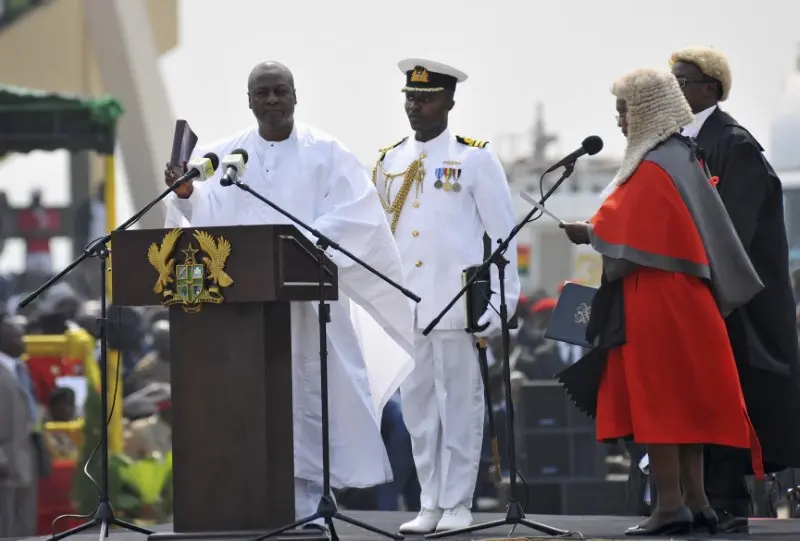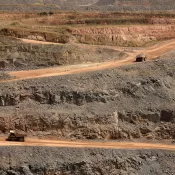
Mahama, the president of Ghana, has announced his intention to stimulate the economy upon his return
On Tuesday, John Dramani Mahama was sworn in for a second term as the president of Ghana at a ceremony held in the capital, Accra. He has committed to addressing public discontent by fostering the economy and generating much-needed employment opportunities.
The opposition leader, who is 66 years old, emerged victorious in the presidential election on December 7th, ensuring a significant political resurgence in the West African nation, which is the world’s second-largest cocoa producer.
Continuing Ghana’s democratic tradition in a region afflicted by military coups and jihadist insurgencies, he succeeds Nana Akufo-Addo, who retires after serving two terms.
The ceremony took place in Accra’s independence square, which has been the site of Ghanaian presidential inaugurations since Kwame Nkrumah was sworn in over six decades ago. At least 20 presidents and chiefs of state from around the globe were in attendance.
“We are a people who have been impacted by economic crises and adversities.” However, there is optimism on the horizon,” Mahama declared in a speech that elicited applause from thousands of ebullient supporters.
Ghana’s economy is currently experiencing growth, following a sovereign debt default, an ongoing aid from the International Monetary Fund, a cost-of-living crisis, and the COVID-19 pandemic.
However, Mahama is facing pressure to promptly fulfill his campaign pledges to address the high youth unemployment and entrenched corruption that have contributed to the distrust in Ghana’s political system.
Godfred Bokpin, a finance professor at the University of Ghana, stated to Reuters, “The average Ghanaian is becoming increasingly frustrated with our democracy.”
“People have done their part by voting but they’re asking: what have they gotten from this democracy?”
HUNGER AND POWER CRISIS
Mahama stated in his speech that his new economic model would be founded on agriculture and agribusiness, and that it would generate employment opportunities for young individuals, encourage local industry, and attract foreign investment.
Supporters and analysts of Mahama’s National Democratic Congress (NDC) party regard his two-thirds majority in parliament as a robust mandate to implement credible policies and make difficult decisions in order to enhance livelihoods and regain investor confidence.
However, an imminent electricity crisis will present an immediate obstacle, as preliminary estimates indicate that service providers are in arrears of more than $2.5 billion. The nascent economic recovery is at risk of being impeded by the deteriorating outlook, which could result in a reduction in output.
Bright Simons of the IMANI think tank in Accra stated, “The outgoing government maintained the system by bandaging open sores.” “They left the festering wounds for him.”
In addition, the incomes of ordinary Ghanaians are being squeezed by high inflation and exchange rate challenges, which necessitate immediate attention.
In November, inflation increased to 23.0% for the third consecutive month, primarily due to an increase in food prices.
“The average Ghanaian is hungry, despite the fact that we can discuss complex topics and skyscrapers.” Bokpin stated, “You must prioritize food production.”
All Categories
Recent Posts
Tags
+13162306000
zoneyetu@yahoo.com


